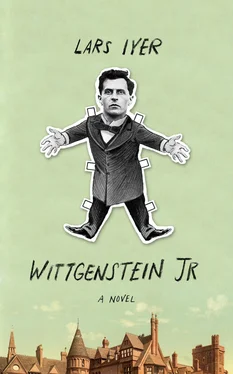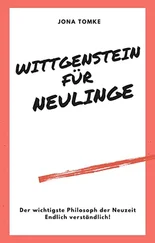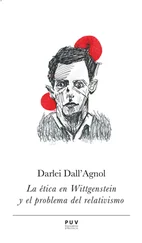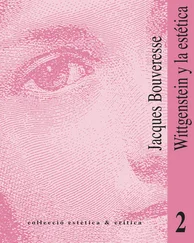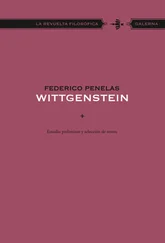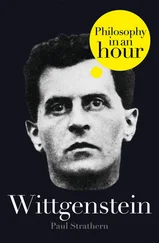There was no better horseman than his father, Wittgenstein says. No better man !
He has no bad memories of his father — not one, he says.
WITTGENSTEIN: My father was a man of absolutes. Of certainties . (A pause.) A man of certainties can act . (A pause). My trouble is that I have no certainties, and therefore cannot act.
His mother was from a thinking family, Wittgenstein says. From a line of thinkers, from old Vienna. He had a thinking grandfather, he says. And a thinking grandmother. It goes back for generations.
They were Viennese Jews, his mother’s family, he says. Then they were Viennese Catholics. Then, with the Anschluss, they were Viennese Jews again. They haunt our steps, that we cannot go in our streets . His great-grandfather paid off the Nazis, and the family fled the country, he says.
His mother was a musical thinker, he says. A concert pianist. She thought as she played. Reviewers wrote of her fine equilibrium of intellect and emotion . Of her purity of style . They wrote of her polyphony . Of her unruffled perfection . They wrote of the morality of her pianism. And of her heart .
It is possible to be too good , he says. My mother was too good .
Through the woods. Low beech branches close to the ground. Saplings in protective frames. Big, iron-coloured oaks.
You have to want to live, if you are to live, he says. That’s what his brother lacked, he says: the desire to live.
We stop to make way for a Land Rover.
His brother showed Lebenskraft , he says — the ability to live. But his brother lacked Lebenswille —the will to live.
Sometimes, he, too, lacks Lebenswille , Wittgenstein says. But we are full of Lebenswille , he says, looking at us with affection. That is why he likes to keep us close.
A small brick outhouse. Then a barn, its doors open, giving into a greeny-black gloom.
The act of suicide means that anything is possible: that is its horror, he says. Anything : even striking against the grounds of life, the life of life.
Suicide mocks the possible, he says. It laughs at life. Death ought to come as grace , he says. As the gift of God. As even the greatest gift of God.
The end is not about the will , he says. We must not want the end. The end must come to us. The end must come, like a horse nuzzling our pockets for a treat.
What is divine is the fact that there is an end to our suffering, he says. That our end is coming.
The end is innocent , he says. It has God’s innocence.
A canal lock. The black-and-white arms of the sluices. The lockkeeper’s house, flying the flag of St George.
Thought was once a matter of character , Wittgenstein says. Of living in a certain way. You were judged as a thinker by the way you lived before others. You showed what you thought by the evidence of your life.
But thought, now, is a kind of beetling , he says. The thinker is a nocturnal insect. The thinker goes about in darkness. The thinker lives and dies unnoticed. His body is swept away with all the others, like a dried-up fly in a dusty corner.
Thinking is no longer an honest pursuit, he says. No longer a decent pursuit. There is something covert about thinking now. Something dirty .
The Fens. Open land, flat to infinity.
He doesn’t like open spaces, Wittgenstein says. Before the sky, you can have no secrets. The light goes right through you. It leaves you no hiding place.
The sky is burrowing into him, he says. Why should he fear it? — the sky is blind; it sees nothing. But he feels that its blindness is itself an eye. An eye that sees . A blind eye — an eye that belongs to no one, that sees .
And it’s not only the sky, he says. The earth watches us, blindly. The toad that crawls through the clods of earth watches us, blindly. The circling rooks …
Nothing is watching, he says. Nothingness itself is watching. He smiles. Imagine what his colleagues in Cambridge would think were he to speak to them of nothingness itself !
Life cannot go on as it is, he says. He has to die. He must die.
His mental suffering must be matched by a commensurate physical suffering, he says. He must be dying. He must be mortally ill.
How much time is left to him? A couple of months, he thinks. A couple of weeks.
Anything could happen, this close to the end, he says. The old laws do not apply anymore. At any moment, a slow tsunami could break over the Fens …
Does water still swirl round the plughole in the same direction? he wonders. Does the law of gravity still apply? Do compass needles still point north? Does one plus one still equal two? Does the moon still orbit the earth, and the earth, the sun?
Do the laws of physics still hold? he wonders. If he walked in front of a bus, would it crush him? If he stabbed himself in the heart, would his heart stop beating? If he cut through his carotid artery, would he bleed to death? If he jumped from St Mary’s, would his body splatter on the ground? If he drank a glass of cyanide, would he die of its toxicity?
He has a fear of time, Wittgenstein says. Of open time. Of empty moments. Empty hours. A fear of intervals . Of time that is not dedicated to a particular task. Time of which he is not the master. A fear of the thoughts that run through his head. Of the thoughts about thought that run through his head …
Life is too long, not too short, he says. Life is eternal.
He has experienced every kind of mental illness , he says. Not one mode of madness is closed to him. He’s heard hostile voices. He’s felt that his mind is being read. He’s felt persecuted. Tormented, by alien forces. He’s experienced great highs, manias. He’s felt grandiosity. He’s felt chosen. He’s felt that only he could save the world.
And he’s experienced terrible despairs, he says. Abysmal depression. He’s had to keep away from sharp knives. From exposed pipework. From bottles of bleach. From high places …
He’s hallucinated, he says. He’s seen the skull of Cantor, full of worms. He’s seen the brain of Gödel, invaded by maggots.
He’s pulled out his hair. He’s picked at his skin. He’s counted his footsteps in intervals of two. He’s sat, mute, for weeks on end, staring at the wall.
Has he ever known joy? Wittgenstein wonders. Has he ever known happiness? Has he lived ? Has he for one minute known what it means to live ?
Has he ever breathed ? Has he ever drawn a single breath? To breathe, to really breathe, must hurt —he’s sure of it. To really breathe must give you pain in your lungs — at the bottom of your lungs.
Has he ever looked ? Has he ever even opened his eyes ? Has he ever spoken ? Has he ever uttered anything true ?
No one can speak the truth if he has not mastered himself, he says.
The truth can be spoken only by someone who is at home in the truth.
Everything must come from the heart, he says.
He wants to say only what he has to say. He wants to drop everything but the essential.
But what is it: the essential? What is it that he has to say?
Driving home through the Fens.
Flooded pasture. Meadows full of standing water. Saltwater wetlands. Tidal creeks and meres. Rivers braiding, fanning out.
You get a sense of what the Fens used to be like, before they were drained, Wittgenstein says. Settlers building on banks of silt, on low hills, on fen edges. Towns like islands in the marshland.
Читать дальше
